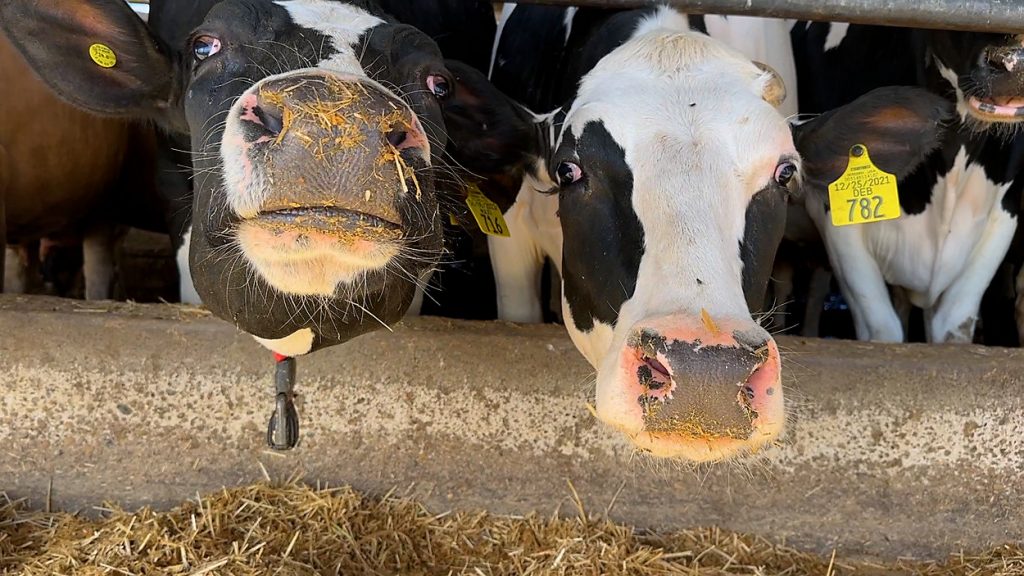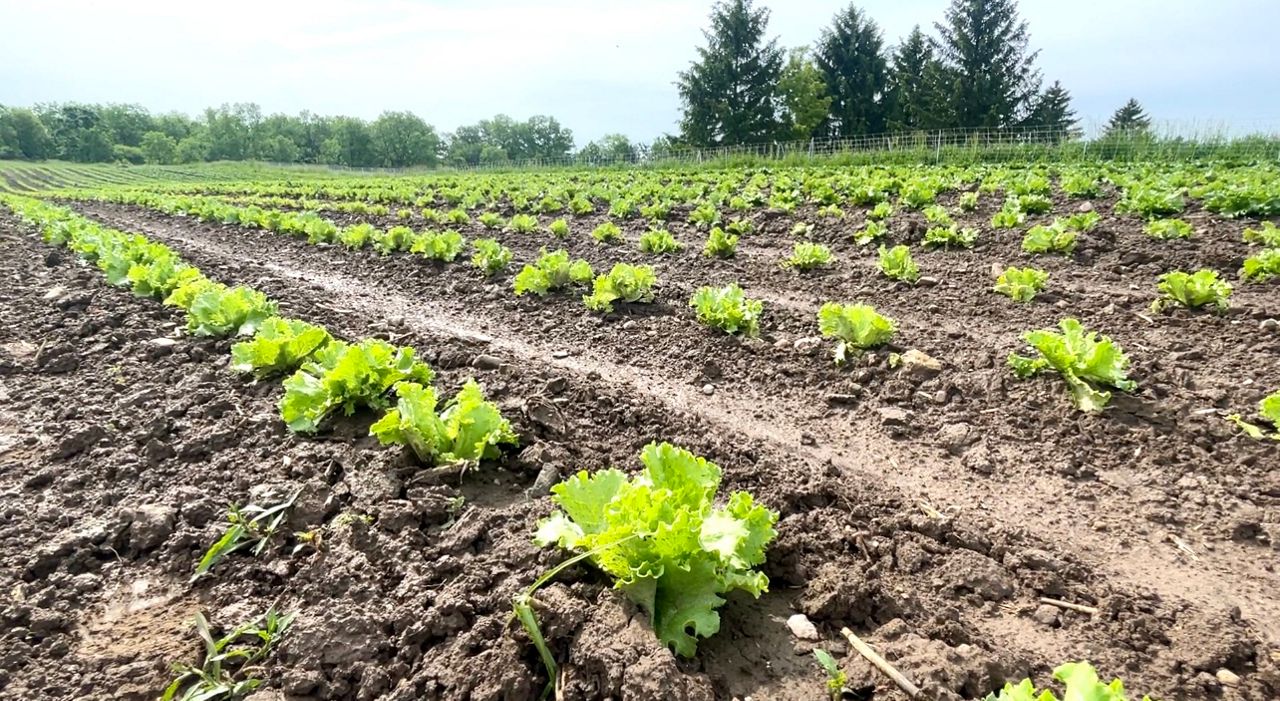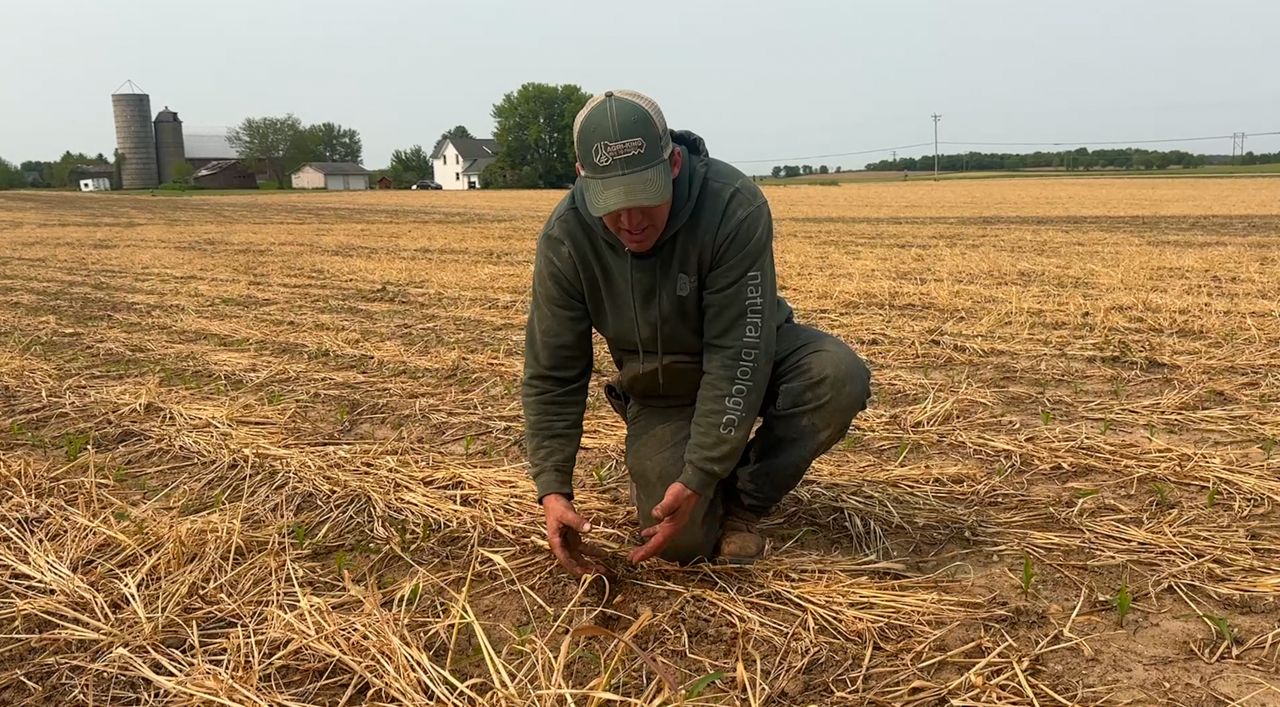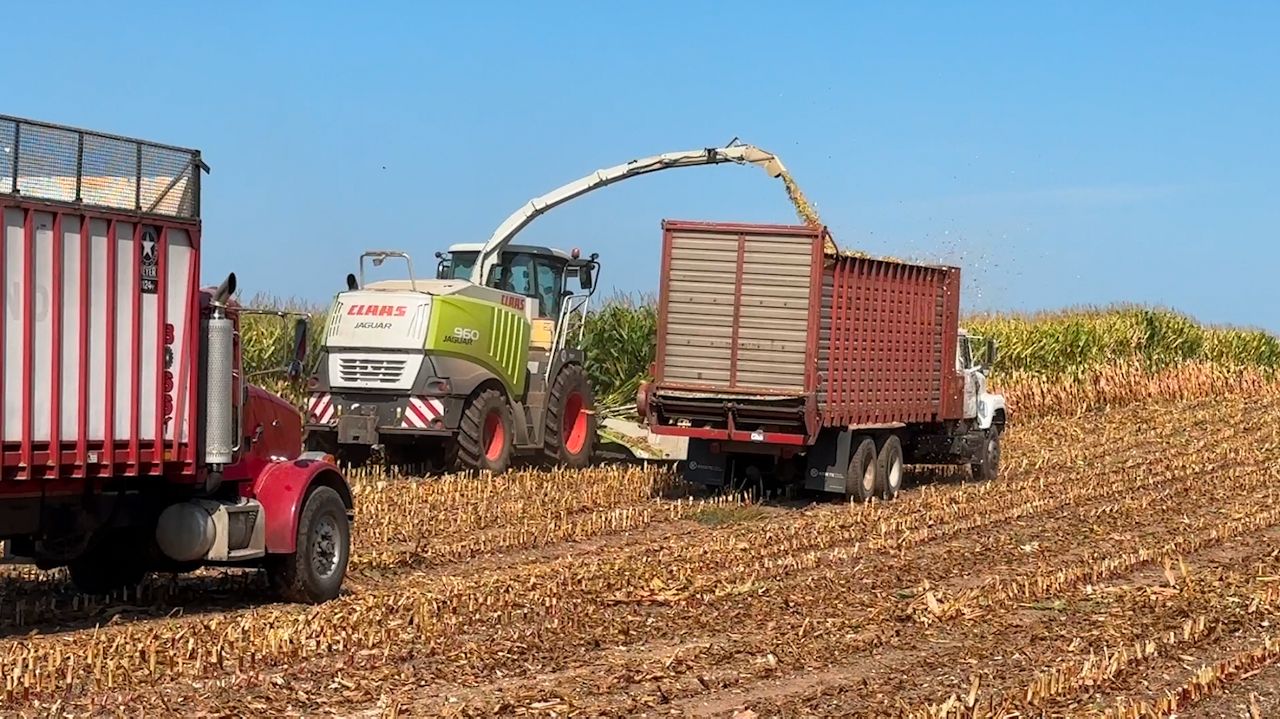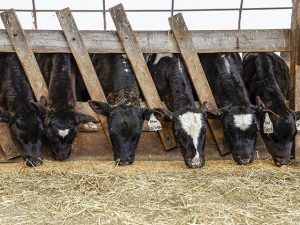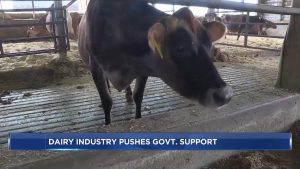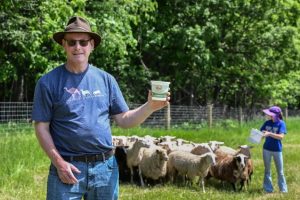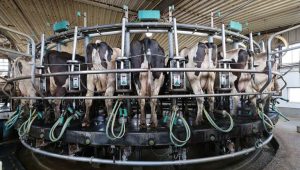
WASHINGTON — Brad Olson grows about 700 acres of corn, soybeans and alfalfa on his farm in northwestern Wisconsin. His family has been farming for generations, but the lure to enter other lines of work over the years has grown stronger.
“If you look back to really the end of World War II, mom and dad always realized that the kids could make a better living off the farm,” he said.
This story mentions suicide. If you or someone you know is struggling with suicidal thoughts, you can call or text 988. For more resources, click here.
What You Need To Know
-
- America’s farmers are getting older, raising concerns in Congress and the agriculture industry
-
- The leader of Wisconsin’s largest organization of farmers is urging lawmakers to provide incentives to encourage young people to become and remain farmers
-
- The USDA said the average age of agricultural producers in 2022 was about 58-years-old
- At a recent committee hearing, lawmakers were told passing a new Farm Bill would provide predictability for farmers
Olson also heads the Wisconsin Farm Bureau Federation, which represents farmers across the state. He’s urging Congress to pass a new Farm Bill with provisions that would provide financing for young people who want to get into farming.
“I came behind my dad in 1997 and if it hadn’t been a family thing, then I’m not sure I could have afforded to get into farming,” he said. “Thirty years later, it’s only that much harder. Everything is that much more expensive.”
According to the U.S. Department of Agriculture (USDA), the average age of agricultural producers in 2022 was 58.1 years old.
The topic of aging farmers was the subject of a recent hearing on Capitol Hill, where members of both parties raised concerns about what’s keeping young people away from farming.
“More and more young people are turning away from their jobs in farming and agriculture due largely to the increased cost of farming, which is especially difficult for small farmers and those just starting out,” said Sen. Rick Scott, D-Florida.
“They need to be able to access broadband and child care and health care. We need to make sure that there is enough mental health, mental health support, at a time when we see more farmers dying by succumbing to suicide,” added Sen. Kirsten Gillibrand, D-New York.
The United States Senate Special Committee on Aging was told that from 1980 to 1990, enrollment in land grant universities dropped nearly 37%; it’s a result of a farm crisis caused by high interest rates and low commodity prices. The repercussions, one witness said, are still being felt today.
“Attracting and retaining the next generation also depends on profitability and predictability,” said Aaron Locker, a managing director with Kincannon & Reed, an executive search and leadership development firm that focuses on food and agriculture industries. “When farmers and agribusinesses face constant regulatory uncertainty or rising compliance costs, it discourages investment and makes leadership succession harder to keep agriculture strong, we must reduce unnecessary regulatory burdens and ensure producers and those across the industry see a future worth building toward.”
The committee was told that passage of a new Farm Bill, which has been delayed for two years, would provide such predictability.
The last House version of the proposed legislation included provisions such as ensuring access to credit for young farmers and providing legal services and access to capital when inheriting a farm. Republicans included some of those provisions in the big tax-and-spending bill they recently sent to the Senate.
Kendall Riskedal represents 18- to 35-year-olds in her role at the Wisconsin Farm Bureau Federation. She said it needs to be easier for young people to take out a loan.
“It’s not a five- or 10-thousand-dollar loan. It’s $100,000. It’s $250,000. It’s half a million. So, when you look at someone that’s 22 and walking out of college, they may or may not have education debt, and then they’re trying to get a big loan like this. The math doesn’t add up,” she said.
Riskedal suggested one way to get young people interested in farming is by bringing back agriculture education to the classroom, so children can understand the basics of nutrition and farming.
Reps. Tony Wied, R-Green Bay, and Derrick Van Orden, R-Prairie du Chien, are both on the House Agriculture Committee.
Wied told Spectrum News 1 it’s a top priority of his “to make it easier for family-owned farms to pass them on to the next generation.”
Van Orden said he supported the committee’s 2024 Farm Bill, which would have permitted “farm credit institutions to work with local lenders and the USDA to help finance important community infrastructure.”
“It also mandated funding for the Farming Opportunities Training and Outreach Program, which assists young farmers and ranchers just starting out in the industry,” Van Orden said.
House Agriculture Committee Chairman Rep. GT Thompson, R-Pennsylvania, and Senate Agriculture Committee Chairman Sen. John Boozman, R-Arkansas, are both committed to funding programs that benefit young farmers and ranchers, according to their respective spokespeople.
“We have a huge problem coming up in the next 10 to 15 years of who’s going to put food on the tables for not just the American people, but people around the world,” Olson said. “We need a Farm Bill. We need a lot of things, but the average age of the American farmer, at 58-years-old, is becoming a national issue.”
A national issue that is waiting for a solution.
You can now read the most important #news on #eDairyNews #Whatsapp channels!!!
🇺🇸 eDairy News INGLÊS: https://whatsapp.com/channel/0029VaKsjzGDTkJyIN6hcP1K
